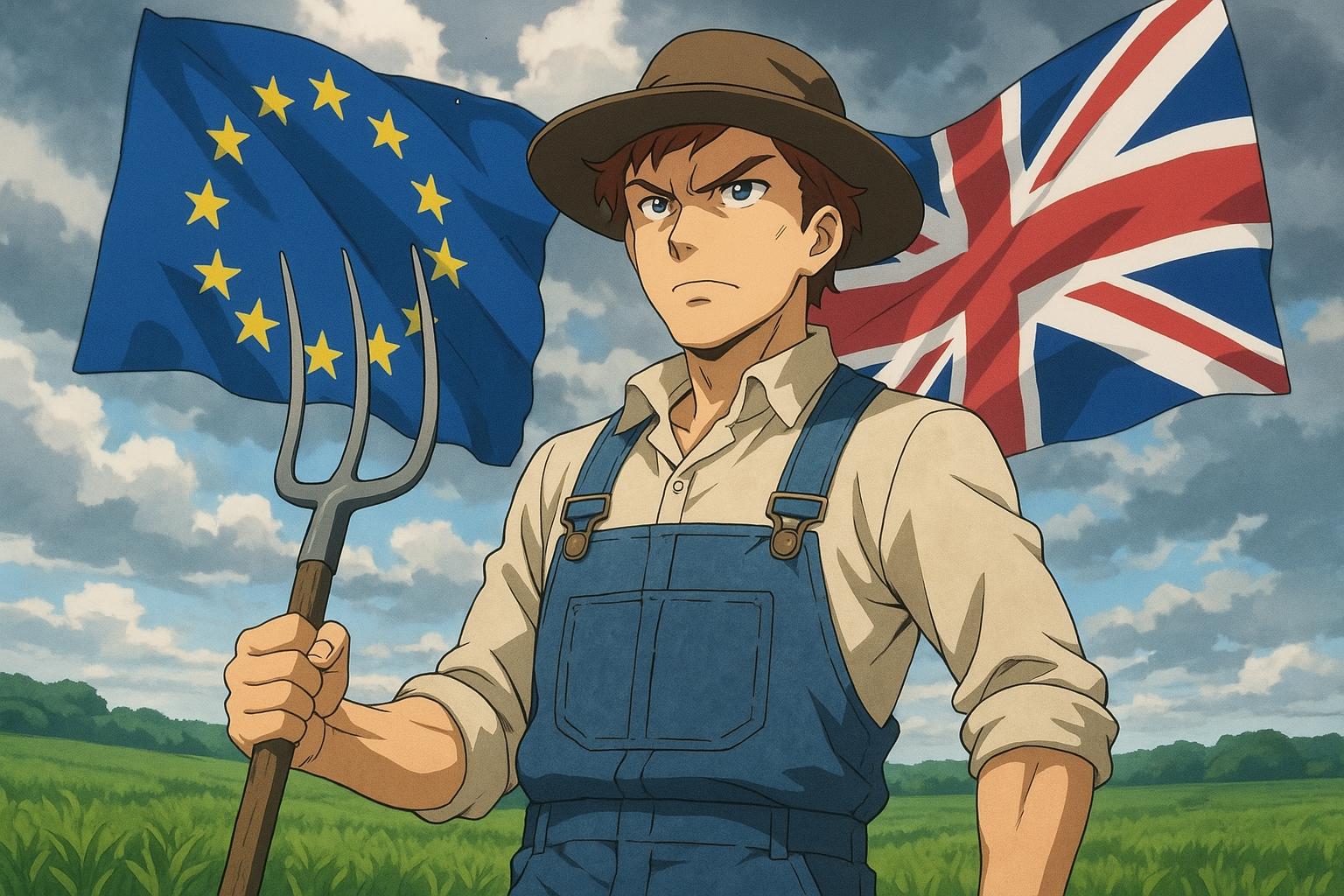British farmers are bracing for a new era of scrutiny as Prime Minister Sir Keir Starmer’s recent agreement with the European Union introduces unannounced inspections at UK agricultural sites. This agreement, part of a broader strategy to foster trade flow and reduce costs, grants EU agencies the authority to conduct random spot checks on farms, abattoirs, and food production facilities. Critics perceive this move as a significant retreat from the independence sought during the Brexit negotiations, arguing that it signals a return to Brussels’ oversight over UK agricultural practices.
The Prime Minister's decision to align with EU sanitary and phytosanitary (SPS) standards aims to facilitate smoother trade relations, potentially bolstering UK exports. However, the arrangement has drawn sharp criticism for compromising British sovereignty. Opposition figures within the Conservative Party are vocal about their concerns, characterizing the agreement as indicative of a “rule-taker” mentality that undermines freedoms gained through Brexit. Victoria Atkins, the Shadow Environment Secretary, has echoed this sentiment, calling the deal a “horror show” for the fishing sector and warning that it places British farming at the mercy of foreign inspectors.
Although inspections by EU officials are not uncommon in international trade agreements—evident in arrangements with countries like Canada and New Zealand—the incorporation of these practices into a UK deal stirs political discontent. This unease is exacerbated by the prospect of inspectors armed with the power to impose sanctions on British businesses, an eventuality that many farming groups find daunting. The implications of this agreement extend beyond agriculture; British fisheries, for instance, face a controversial 12-year extension of EU access to UK waters, further fuelling frustration among those anticipating greater control over domestic fisheries.
Economically, the arrangement is positioned as a pathway to increasing UK exports to the EU, with forecasts suggesting a potential rise by over 10% in some sectors. Proponents of the deal maintain that easing agrifood trade barriers will accelerate post-Brexit recovery. In tandem with this push for economic revitalisation, the agreement seeks to simplify the export process for British farm and fisheries products, aiming to mitigate the bureaucratic obstacles that have plagued exporters since the 2020 transition period.
Meanwhile, the backdrop of this new agreement is one of significant operational shifts. Following the introduction of the £23 million Brexit border control facility at Sevington, Kent, discussions are now underway regarding its future, given the expected reduction in border checks. Originally built to handle potential no-deal scenarios, these sites, now dubbed ‘white elephants,’ reflect the evolving landscape of UK-EU trade relations. With insufficient inspections calling the necessity of these facilities into question, many are urging the government to reconsider its investment in maintaining them.
As the UK and EU engage in a reevaluation of their post-Brexit relationship, broader implications for security and economic cooperation are emerging. The latest agreement signifies a notable shift towards better engagement with Europe, underscored by a new security and defence partnership aimed at enhancing collaboration in military and cyber capabilities. This strategic realignment underscores the UK’s recognition of the need for stronger ties with its principal trade and security partner, a sentiment reiterated by analysts who stress the value of constructing cooperative frameworks amidst growing global uncertainties.
Ultimately, while the Labour government frames this new era as one of pragmatic diplomacy and economic rejuvenation, many in the farming and fishing industries are left questioning the true cost of re-engagement with the EU. As fresh inspections loom, the balance between compliance and sovereignty remains a contentious point in discussions of Britain’s future relationship with its European counterparts.
Source: Noah Wire Services
